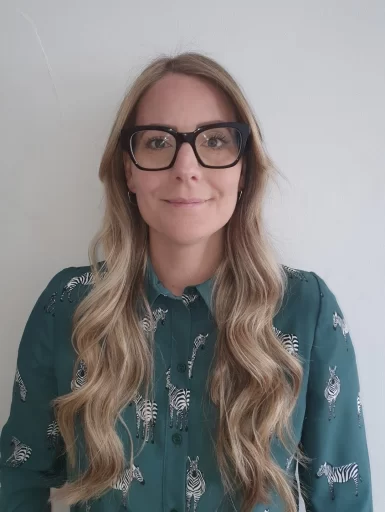Hello and Welcome to Kerry Traynier Counselling & Psychotherapy
A safe & confidential space to explore & understand your feelings, thoughts & behaviours
Welcome, and thank you for visiting Kerry Traynier Counselling and Psychotherapy. I am a counsellor and psychotherapist providing both short and long-term therapy in central Liverpool. Read on for more information, or contact me today.
About Kerry Traynier Counselling & Psychotherapy
Hello and thank you for visiting my website. My name is Kerry and I am a person-centred experiential counsellor and psychotherapist. I am regulated by the British Association of Counsellors and Psychotherapists (BACP) and abide by their ethical framework within both counselling sessions and my private practice.
As well as working in private practice, I also work alongside Mindsmatter (NHS) and have spent time volunteering at an organisation which offered counselling to vulnerable people within the local community. Working as a counsellor and psychotherapist within these three different sectors has enabled me to develop and enhance my skills and experiences as a therapist by conducting therapy sessions alongside different individuals presenting with a range of varied emotional and mental health issues such as stress, anxiety, depression, suicide ideation, and grief and bereavement. Click here to read about how counselling can help.


I offer professional counselling and psychotherapy to individual adults aged 16 years plus who are experiencing some form of emotional distress which can impact daily life. My approach within therapy sessions is to provide a safe and confidential space for you to feel comfortable and able to freely explore your feelings, thoughts and behaviours which are impacting your mental health and well-being.
Click here to read more about my approach and methods, or contact me if you have any questions or arrange an appointment.
Speak in Confidence
Counselling takes place in a safe space, where you can meet with someone who will listen with sensitivity and empathy - and without judgement. In the therapy space thoughts and feelings can be expressed freely and in confidence.
A problem shared...
Trouble with a relationship; anxiety or panic attacks; mood swings or depression - many people face difficulties in their everyday lives that can be hard to get on top of. Counselling gives us a set of tools we can use to help gain a better understanding of what’s causing these problems - and how you can move towards managing or resolving them.
Make better, healthier new choices
Working together I can help you gain greater insight into the difficulties you are facing, help you understand why you act or react to them the way you do, and see how you can start to make better, heathier choices moving forward.
How Counselling Can Help
My personal belief is all people, at some point in life, will experience some form of emotional and mental distress which can impact their mental health and well-being. For some individuals, they are able to work through this distress alone or with the help of family and friends, however for others they require help and support from a professionally trained and qualified counsellor and psychotherapist.
Counselling and Psychotherapy are similar in their foundation which is focused upon the exploration, understanding and potential enhancement of an individual’s mental health and well-being; however, they differ in the approach in which they undertake to explore issues which may impact mental health and well-being. Counselling is normally a short-term process which supports an individual to reflect upon current emotional issues they experience which affects their daily life. The aim of counselling is to process these emotional issues with the aim of developing strategies, tools and actions which enhance healthier emotions and behaviours and allow an individual to manage daily life more efficiently and effectively. In comparison, Psychotherapy is a long-term process which has a more in-depth focus on past experiences, feelings and behaviours which have created unhealthy emotions and feelings, and conditioned thought processes and behaviours. Psychotherapy works to identify the root cause and subsequent triggers of such emotions, feelings, thoughts and behaviours, and to potentially enhance self-awareness, self-understanding and self-growth.
Counselling sessions are a safe and secure environment whereby an individual is provided with the opportunity to explore and express any emotional distress they have been or are experiencing. Counsellors are trained and skilled to help support and guide individuals to process and understand their emotional distress, to begin the development self-awareness and to create a more healthy, positive and peaceful way of being.
Having spent a great deal of time working with a range of different clients who have presented a range of different issues, I am acutely aware of how difficult it can be to take the first step to begin therapy. For some people, they may not have attended therapy prior and may feel unsure, nervous or even reluctant to talk about personal matters and emotions with a stranger. For others, they may experience difficulty talking about certain experiences and emotions due to the complex and traumatic nature. I, therefore, work in sessions by respecting each client’s autonomy, personal choice and responsibility, with a non-judgemental and accepting attitude and practice.
What issues can counselling help with?
Person-centred experiential therapy can help with the following:
Focusing on identifying the various sources of stress, whether it be family, work, social or lifestyle, and understanding the associated triggers which impact daily life. Working towards adapting feelings and behaviours in order to better manage the effects of stress on the mind and body.
Exploring the root cause of potential anxiety disorders, such as overthinking, worry or panic, in order to recognise and determine the significance of feelings, thoughts, behaviours and experiences. Including how these can be improved upon to become more manageable on a day-to-day basis and during periods of heightened anxiety.
Identifying the activators for depression whether they be genetic, environmental or situational, to allow the development of self-understanding and self -compassion. Promoting resilience and motivation through daily tools and strategies to manage the effects of depression.
Providing a non-judgemental and supportive space to enable working compassionately and emphatically to allow individuals to explore and examine their feelings and thoughts surrounding suicide ideation and self-harm. Ensuring each individual is felt heard, understood and validated.
Gently and sensitively exploring the emotional, mental and physical impacts and effects of experienced trauma to enhance healing and promote healthier well-being through self-understanding, self-awareness and self-growth.
Assisting individuals to search for and discover the potential triggers for OCD and to understand the correlation between the triggers and subsequent OCD behaviours implemented into daily life. Supporting individuals to use this process to identify healthier thoughts and behaviours.
Supporting individuals to explore and examine negative feelings and thoughts surrounding their sense of self-worth. Encouraging individuals to challenge negative feelings and thoughts and implement more positive feelings and thoughts to enhance self-worth, self-confidence and self-esteem.
Addressing issues within specific relationships whether it be with a partner, family member or friend and working towards developing healthy communication and boundaries to feel safe and secure within relationships.
Providing a safe and confidential space and working compassionately and gently with individuals to process any type or form of loss they have experienced in their life. To allow individuals the space to release their overwhelming feelings of loss and sadness, and to feel understood and heard.
Creating a safe and supportive environment whereby an individual can explore their grief concerning the loss of a beloved pet and member of the family. To enable an individual to feel heard, understood and accepted when discussing their loss, reliving memories and processing their grief.
My Counselling Approach
The main counselling approach I work within is the Person-Centred Experiential approach. However, I also work in an integrative way which involves incorporating specific principles of Cognitive Behavioural Therapy depending on the needs and wishes of each client. Person-Centred Experiential therapy is a humanistic and emotion focused non-directive talking form of therapy which is very much focused on each individual; including their overall lives, their experiences and relationships, and their thoughts, feelings and emotions. As our feelings, thoughts and behaviours are intrinsically linked, this specific counselling approaches works to identify the links between our feelings and thoughts, how these may influence our behaviours and impact our mental health and well-being. This is done by an individual focusing on specific experiences, both past and present, and the associated feelings, emotions and thoughts evoked. The process involves paying close attention to the moment-to-moment immediate experiencing and unpacking this to identify and understand specific emotions, feelings and behaviours and the impact of these.
The approach believes that all individuals, when provided with the right conditions, especially during therapy, are able to gain the capacity and ability to challenge, change and develop their mental health and well-being. For some people this maybe exploring and understanding specific experiences, thought patterns and behaviours, and unhealthy emotions. For others, it may be gaining greater clarify and awareness with regards to specific mental health issues such as stress, anxiety or depression, and how to better cope and manage these issues within their daily life.
During Person-Centred Experiential counselling sessions, you are encouraged to bring what you feel comfortable speaking about to each session, and to direct and structure the session in a way which feels most beneficial to you and your process. My role within the therapy session is not to direct or structure sessions but to act as a guide and source of support by providing non-judgemental but empathic responses, reflections and at times questions to help you explore, unpack and process both past and present experiences, along with the associated emotions and feelings and thought and behavioural patterns. The hope and aim of this type of therapy is to not only support individuals in gaining greater self-awareness and self-understanding, but to also identify healthier and more positive emotional and mental behaviours and responses, and to implement changes into daily life.
Frequently Asked Questions
Coming to therapy for the first time can be daunting and create additional feelings of anxiety, which are natural and understandable. However, an important part of therapy is feeling comfortable and able to speak open and freely during sessions about what it is you are bringing to therapy. Having a family member or friend present during the session, who may be connected to those issues, may prevent you from feeling able to fully open up. Due to this, I ask that relatives or friends do not come along to sessions.
A free 10–15-minute telephone consultation call will be scheduled within a week of you making initial contact. After the telephone consultation call, your first counselling session can usually be booked in within 1-2 weeks depending on the availability of slots and when is convenient for you. I will always try my best to be as flexible as possible.
How long you will need counselling for depends entirely on you and your process. The number of sessions vary from person to person; some individuals may only require a small number of sessions in order to address and understand specific issues, for other individuals they may require sessions over a longer period of time which allows them to focus on deeper issues. I offer open ended therapy meaning there is no specific requirement to commit to a definite number of sessions.
Confidentiality is an important factor within counselling as it allows an individual to feel at ease sharing personal experiences, feelings and thoughts. Everything discussed within each session is kept private. The only time confidentiality may be breached is when I feel there may be a risk of safety towards yourself or others. In this instance, I have a moral and ethical obligation to notify a registered authority such as your GP or alternatively, a next of kin. However, please be assured that breaching confidentiality is rare and will only happen once I have discussed this with you directly.
Qualifications & Training
I have completed the following training and gained the relevant qualifications:
- BA (Hons) Counselling and Psychotherapy
- MSc Psychology
- Certification in CBT Coach Practitioner
- Certification in Online and Telephone Counselling

Location
My private practice is based at my office located at Oriel Chambers, 14 Water Street, Liverpool, L2 8TD.
My office is based close to bus stations, train stations and several public car parks.
Fees & availability
I offer both short-term and long-term counselling sessions via face to face, online or telephone. Counselling sessions last 60 minutes in total and how regular counselling sessions are held, whether it be weekly, fortnightly or monthly, is decided by you; I do try to be as flexible as possible with regards to sessions.
Counselling sessions cost £50.00 per session and should be paid in advance of the pre-booked counselling session via bank transfer.
Before any counselling sessions are booked, I do offer a free 15-minute consultation call in order in which we can initially get to know each other and determine if we would be a good fit. Contact me to get started.

Get in touch
Should you have any questions about the therapy process, myself as a therapist or the counselling approach I work within, please do contact me by email using the secure contact form here.
You can also call me on 0772 2956892 if you would prefer to leave a message or speak to me first.
I offer a free initial assessment via phone. This consultation call is a 15 minute conversation.


